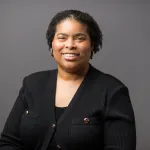The Art and Science of Non-Surgical Spine Care: A Physiatrist's Approach to Personalized Treatment Plans
Spine pain doesn't automatically mean you need surgery. In fact, 90% of the time, back issues do not require surgery! As a board-certified physiatrist, Dr. Anita Cone-Sullivan specializes in the non-surgical treatment of spine disorders. Physiatrists are medical doctors who focus on providing comprehensive care through patient education and rehabilitation, helping patients find relief and improve function without surgical intervention.
In the realm of spine care, there's no one-size-fits-all approach to healing. Every patient's journey is unique, shaped by their lifestyle, health conditions, and personal goals. Dr. Cone-Sullivan shares her insights into the delicate balance of art and science in creating effective treatment plans.
Understanding the Whole Patient
"I take a lot of things into consideration," explains Dr. Cone-Sullivan. "One is their current level of everyday function." This comprehensive approach means that two patients with similar conditions might receive very different treatment plans. For instance, an avid marathon runner will have different needs and expectations than someone who primarily uses a walker for mobility.
The Diagnostic Journey
The foundation of any successful treatment plan begins with thorough diagnostics. Dr. Cone-Sullivan emphasizes that a good history and physical examination often provide the cornerstone for diagnosis. From there, she employs a strategic progression of diagnostic tools:
1. History and physical examination
2. X-rays for initial imaging
3. Advanced imaging (MRI or CT scan) when necessary
4. Specialized diagnostic procedures like medial branch blocks when necessary
Conservative Care: The First Line of Defense
One of Dr. Cone-Sullivan's guiding principles is to "stay as conservative as possible." She notes that most people don't need spine surgery, which often comes as welcome news to patients. The conservative approach typically includes:
- Physical therapy or aquatic therapy
- Home exercise programs
- Medications for inflammation management
- Core strengthening exercises
Patient Partnership: The Key to Success
What sets physical medicine apart is the emphasis on patient involvement. "I like to give patients options," Dr. Cone-Sullivan shares. "We decide together what's the best fit for that person." This collaborative approach ensures that treatment plans are not just medically sound but also practical and achievable for each individual.
Setting Realistic Expectations
Recovery is rarely instantaneous, and managing expectations is crucial. Dr. Cone-Sullivan uses an age-old analogy: "Rome wasn't built in a day. It takes time, just like when we're trying to get in shape." She helps patients understand that healing is a process, particularly when dealing with spine-related conditions.
Advanced Treatment Options
When conservative treatments don't provide adequate relief, Dr. Cone-Sullivan may recommend more advanced interventions. One notable option is radio frequency ablation, which can provide significant relief without requiring patients to stop blood-thinning medications. "There's a 90% chance of it working if the medial branch blocks work," she explains, noting that results can last anywhere from several months to several years.
The Importance of Active Participation
Success stories often come from patients who fully engage in their treatment plan. This means:
- Listening to their body during daily activities
- Properly warming up and cooling down during exercise
- Consistently performing prescribed home exercises
- Maintaining open communication with their physical therapist
Perhaps most importantly, Dr. Cone-Sullivan emphasizes that treatment isn't just about addressing immediate pain—it's about building a foundation for long-term health. Even after successful interventions like radio frequency ablation, she encourages patients to continue with core strengthening and home exercises to maintain their progress and prevent future issues.
Empowering Patients to Thrive
The art of physical medicine lies in crafting treatment plans that address not just the condition, but the whole person. By combining scientific diagnostics with individualized care approaches and patient education, physicians like Dr. Cone-Sullivan help guide patients toward optimal function and improved quality of life. It's a journey that requires patience, dedication, and partnership between doctor and patient—but one that can lead to significant, lasting improvements in physical health and daily function.
Take the First Step Toward Relief
Are you dealing with back pain or looking for a conservative approach to managing your condition? Dr. Cone-Sullivan's comprehensive, patient-centered approach could be the solution you've been seeking. Whether you're an athlete looking to return to peak performance or someone seeking to improve their daily function, she'll work with you to create a personalized treatment plan that fits your lifestyle and goals.
Don't let pain hold you back from living your full life. Schedule a consultation with Dr. Cone-Sullivan today by calling 770-962-4300 or book online. Take the first step on your journey to better function and improved quality of life.
